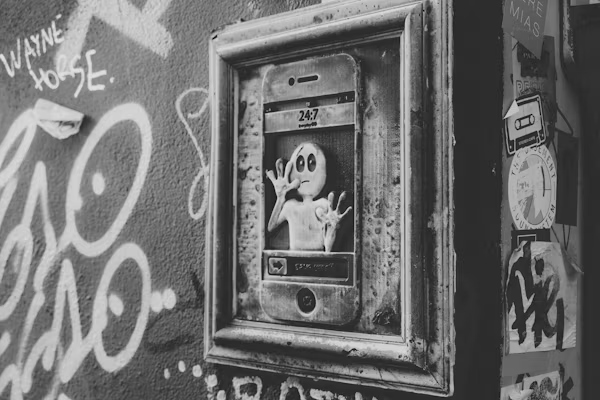Introduction
In the age of constant connectivity, online identities often take on a life of their own. Some names or personas emerge in forums, social media, or niche digital spaces and quickly develop a reputation, sparking curiosity about who they are, what they represent, and why they resonate. One such enigmatic name gaining attention is Carmela Clouth.
While the details surrounding Carmela Clouth remain elusive, the name itself has become a fascinating case study in digital identity, cultural interpretation, and the modern mystery of online presence. This article traces the possible meanings, cultural implications, and digital footprint of “Carmela Clouth,” offering insight into how such identities shape—and are shaped by—the internet’s collective imagination.
The Linguistic Puzzle of “Carmela Clouth”
The name “Carmela Clouth” has an air of mystery, blending familiarity with peculiarity:
-
Carmela → A recognizable first name of Italian and Spanish origin, meaning “garden” or “orchard,” often associated with warmth, tradition, and classic femininity.
-
Clouth → Less familiar and harder to trace. It could be a variant spelling of “Clout,” suggesting influence or social power, or a surname variation tied to European roots.
This combination of a familiar, almost intimate first name with a rare, unusual surname creates a sense of intrigue—ordinary meets extraordinary—which helps explain why the name captures digital attention.
Digital Footprints: Where “Carmela Clouth” Appears
Though not a mainstream celebrity or brand, “Carmela Clouth” has surfaced in several ways:
-
Social Media Handles → The name appears sporadically in profiles, raising questions about whether it belongs to one individual or multiple users adopting it as an alias.
-
Creative Communities → Mentions have been tied to artistic projects, online storytelling, and independent digital content.
-
Discussion Threads → In forums, the name often sparks speculation about whether “Carmela Clouth” is a pseudonym, character, or even a collective identity.
This fragmented digital footprint contributes to the mythos of Carmela Clouth—an identity that is searchable yet undefined, present yet elusive.
The Cultural Mystery of Online Identities
Names like “Carmela Clouth” highlight how digital culture thrives on mystery and speculation. In the absence of verified information, users build their own interpretations:
-
As a Persona → Some may see Carmela Clouth as a constructed identity, carefully curated for online storytelling or community participation.
-
As an Alias → Others interpret it as a protective pseudonym, allowing someone to navigate the digital world with privacy and creativity.
-
As a Symbol → The name itself, mysterious and slightly unusual, can serve as a cultural marker for those drawn to ambiguity and hidden meanings.
This open-endedness mirrors a larger trend in online culture, where digital identities are not just representations of real people but symbols of freedom, experimentation, and narrative play.
Why “Carmela Clouth” Resonates in Digital Culture
The allure of Carmela Clouth lies not in what is known, but in what is unknown. Ambiguous digital identities resonate because they:
-
Spark Curiosity → Mystery creates engagement; people are drawn to uncovering the story behind the name.
-
Encourage Projection → Users project their own meanings, seeing the identity as a mirror of their creativity or curiosity.
-
Foster Connection → Shared speculation builds micro-communities around interpreting the figure.
In this way, “Carmela Clouth” becomes more than a name—it transforms into a cultural puzzle that participants enjoy piecing together.
Online Identity and the Power of Ambiguity
The story of Carmela Clouth reflects a broader truth about online life: ambiguity is power. Unlike celebrities whose identities are tightly defined, mysterious figures thrive by leaving space for interpretation.
-
Flexibility → An undefined identity can evolve with shifting contexts.
-
Immortality → A name without a single owner or narrative can be reused, reshaped, and reinterpreted indefinitely.
-
Influence → The intrigue itself creates a form of digital clout, making the name memorable and conversation-worthy.
This positions Carmela Clouth within the larger tradition of digital-era myths and archetypes—figures who blur the line between individual, alias, and cultural phenomenon.
Comparisons: Carmela Clouth and Other Digital Identities
Similar cases in the past help frame the cultural role of Carmela Clouth:
-
Anonymous → Once just a description, now a powerful collective identity.
-
Lil Miquela → A fictional influencer whose identity challenges the boundaries of authenticity.
-
Usernames like “Shroud” or “Dream” → Pseudonyms that evolve into global brands.
Like these, “Carmela Clouth” may evolve into a symbolic identity that stands for mystery, creativity, and cultural resonance rather than a single individual.
The Future of “Carmela Clouth”
Where does the story of Carmela Clouth go from here? Several possibilities exist:
-
As a Creative Project → The name could anchor digital art, writing, or performance.
-
As a Community Marker → It may continue to spread as a shared pseudonym across platforms.
-
As a Cultural Artifact → Even if no single identity emerges, Carmela Clouth may endure as an online mystery that captures a specific moment in digital history.
The key lies in how users adopt, reinterpret, and circulate the name—keeping it alive through curiosity and creativity.
Conclusion
Carmela Clouth exemplifies the cultural mystery of the digital age. More than just a name, it is a symbol of identity, ambiguity, and collective imagination. In an internet world where authenticity and anonymity constantly collide, figures like Carmela Clouth remind us that sometimes the most powerful digital presences are not the ones fully understood, but the ones that remain a puzzle.







